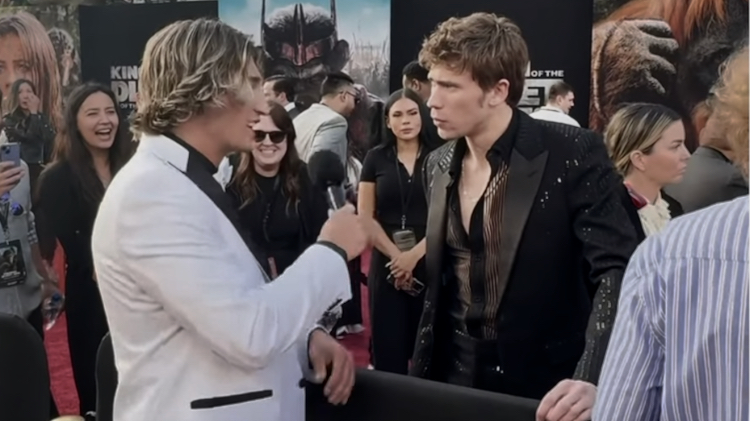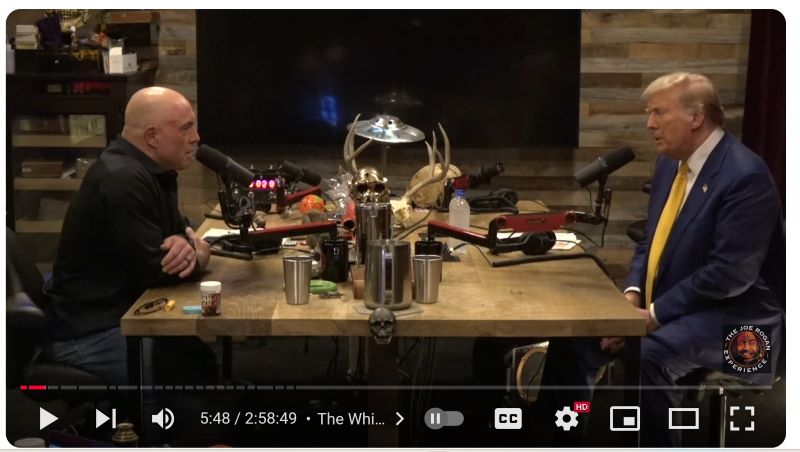For Hollywood, lessons can be learned from the digital media strategy of the Donald Trump presidential campaign. That strategy is credited for powering his substantial election win, and it’s instructive to compare to the opposite approach of his opponent.
“But while both campaigns worked overtime to court influencers, their strategies were divergent,” writes Taylor Lorenz in the Hollywood Reporter trade newspaper. “The [Kamala] Harris campaign prioritized short-form clips, investing in quick videos and viral remixes on TikTok and Instagram. The Trump campaign went deep and long, investing heavily in long-form YouTube podcasts and building partnerships with live-streamers. Ultimately, the latter proved wildly more successful.”
The THR story quotes Brendan Gahan, CEO of influencer marketing agency Creator Authority, saying the Trump strategy is to partner with online outlets, while the Harris campaign viewed them as just another media channel. “The Trump campaign traveled to meet with various content creators, while Harris sought to make influencers meet on her own turf,” says the article.
A marathon three-hour interview by podcaster Joe Rogan on Oct. 25 (Rogan and Trump are pictured above), which was on the cusp of Election Day, seemed to particularly sway voters.
The Trump approach was also opportunistic, such as his publicity stunt of riding a garbage truck with a Trump placard after sitting-President Biden trash-talked Trump supporters as “garbage.” It was an impish slap-back.
Also, Trump was flexible on his feet, willing to jump into situations that couldn’t be controlled. These include dropping into a barber shop and working the drive-through window at a McDonald’s restaurant.
In contrast, his opponent Harris stuck to choreographed events that were polished, but also seemed very scripted. Harris skipped a three-hour, in-depth interview with podcaster Rogan, but made time to be in New York for a scripted, 90-second cameo appearance on NBC Television’s “Saturday Night Live,” which is indicative of media choices her campaign made.
It’s a frequent problem faced by movie marketers. How to wring publicity out of talent that doesn’t want to reach out. Trump’s success shows the cost of subdued personal outreach. Recall that the Harris campaign emphasized the vibe “joy” and steered away from talking policy specifics that would have required engagement.
Hollywood marketers often find themselves forced to steer away from major elements of movies, such as when star talent is engulfed in scandal or a plot element unexpectedly becomes radioactive.

A case in point is nuclear accident yarn “The China Syndrome,” whose boxoffice in 1979 suddenly declined when a real-life atom-plant accident coincidentally occurred in the middle of its theatrical release. The marketing conclusion is that audiences enjoyed the drama when it seemed like fiction, but didn’t want to see the film when its theme suddenly became too real.
Trump’s garbage truck drive and food-service work at McDonald’s generated a buzz in news media and online social media, which is free publicity called “earned media.” That’s attention received without payment, like paid-for advertising.
A recent Trump post online said “our biggest asset in the campaign was ‘Earned Media,’ and that doesn’t cost very much.” It’s estimated that the Trump campaign spend roughly half as much money than rival Harris.
It also appears that Trump’s motley collection of online influencers bested Hollywood celebrities who provided conspicuous endorsements for Harris. Hollywood A-listers George Clooney, Taylor Swift and Oprah Winfrey advocated publicly for Harris. The Harris campaign staged glitzy music concerts featuring endorsers Jon Bon Jovi, Katy Perry and Lady Gaga.
A conclusion: digital celebs may be less well-known, but they are often more relatable and accessible, such as through online interaction. The Hollywood mega-stars still shine bright for the public, but are distant on pedestals, meaning there’s less of a personal connection.
The interview on “The Joe Rogan Experience” merits deeper analysis, because in retrospect it proved influential, according to post-election analysis. This podcast’s audience tilts to the male demographic, which favored Trump and which Trump wanted to motivate. Note that Harris considered a Rogan chat-fest as well, but insisted on a shorter-than-normal length of an hour, which Rogan rejected. Rogan eventually endorsed Trump.
While Rogan’s podcast audience is sizeable, his media impact is amplified by news reports, which creates a ripple effect. And Rogan’s podcast is a catalyst for digital bits bouncing around cyberspace, including consumers pinging acquaintances. Rogan’s podcast has 14 million followers on Spotify and 18 million on YouTube.
Trump did about 20 podcasts, including the comedian Theo Von’s show and Barstool Sports’ “Bussin’ With the Boys,” which is far more than his rival. Those Trump appearances tapped the podcast audiences, and were a megaphone when journalists and social media picked up. As Hollywood Reporter suggests, “Trump Won the First ‘Influencer Election.’”
Related content:

Leave a Reply